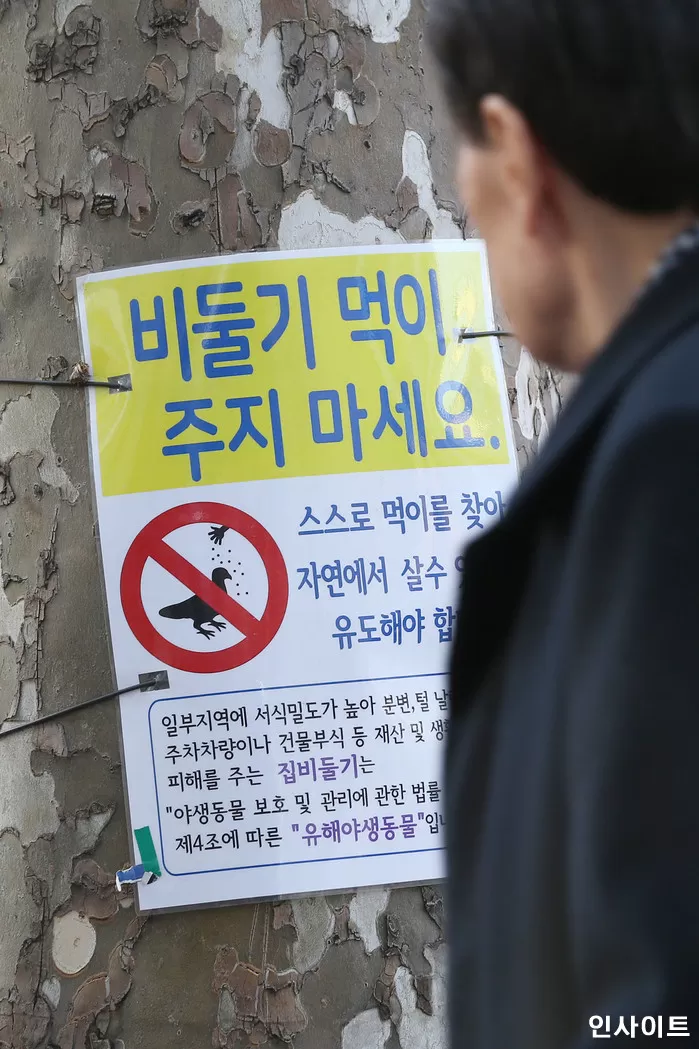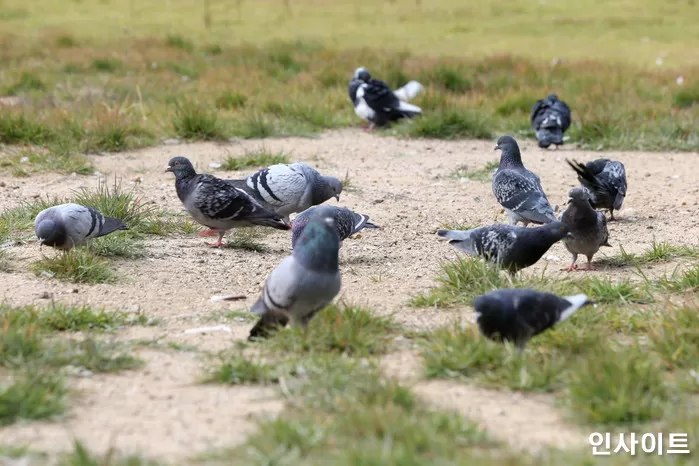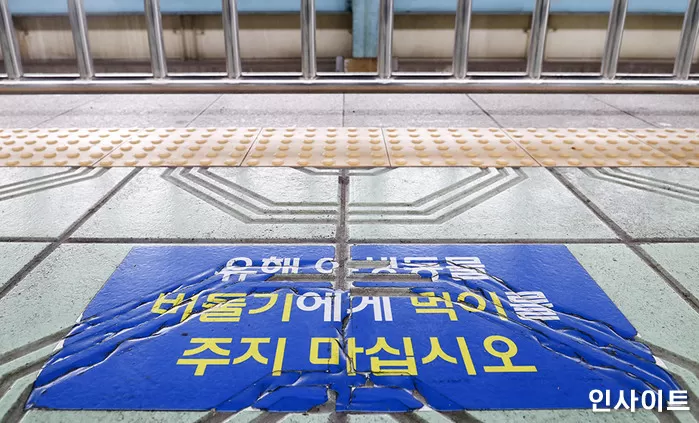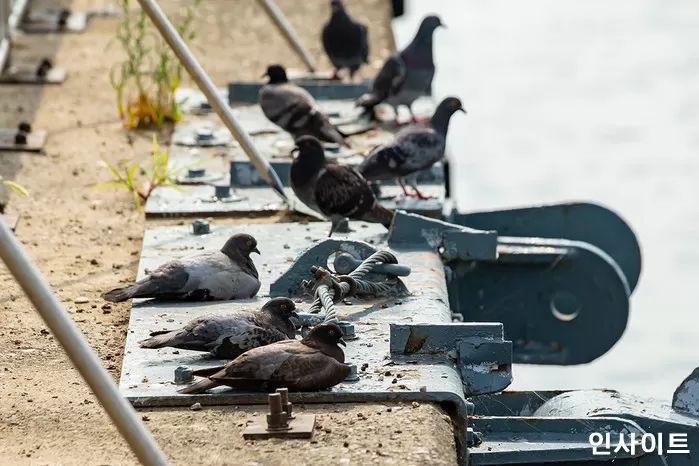Seoul City Designates 38 Areas as "Prohibited Zones for Feeding Wildlife"
Seoul City announced on the 9th that it will designate a total of 38 locations, including urban parks and Hangang parks, as "Prohibited Zones for Feeding Wildlife" and will officially announce this on the 10th.
Accordingly, starting from July, individuals caught feeding wildlife such as pigeons or magpies in locations like Gwanghwamun Plaza, Hangang Park, and Seoul Forest will face fines of up to 1 million won.
Maximum Fine of 1 Million Won
This measure is based on the revised "Law on the Protection and Management of Wildlife," which was amended in January last year.

According to the revised law, local government heads can prohibit feeding wildlife through municipal ordinances and impose fines for violations.
As a follow-up measure, Seoul City enacted and implemented the "Ordinance on Prohibiting Feeding Wildlife in Seoul" in January this year, and this announcement specifies the particular prohibition periods and zones.
Prohibition on Feeding Wildlife to be Enforced for Three Years Starting in July
Currently, wildlife that is considered harmful includes animals like sparrows, magpies, and crows that cause damage to crops or orchards by gathering in large numbers over extended periods, as well as animals such as pheasants, pigeons, roe deer, wild boars, and squirrels that are overpopulated in certain areas and cause damage.

The prohibition period for feeding wildlife has been set from July for a duration of three years.
According to the relevant ordinance, the mayor of Seoul can review changes or rescind the prohibited zones every three years.
The areas designated as prohibited zones include all 38 locations managed by Seoul City, comprising most major parks such as Seoul Forest, Namsan Park, World Cup Park, Yeouido Park, Bukseoul Dream Forest, and Seoul Grand Park, as well as Seoul Plaza, Gwanghwamun Plaza, and 11 Hangang parks (Gwanak, Jamsil, Ttukseom, Jamwon, Ichon, Banpo, Mangwon, Yeouido, Nanji, Gangseo, Yanghwa).

Fines Imposed for Violations, Grace Period until June
Those caught feeding wildlife in the prohibited areas will incur fines of 200,000 won for the first offense, 500,000 won for the second offense, and 1 million won for the third offense.
Seoul City has designated the period until June 30 as a grace period, and will commence regular inspections and the imposition of fines starting from July 1.
A Seoul City official explained, "We aim to prevent and minimize hygiene-related issues caused by wildlife feces and shedding as well as property damage such as corrosion and destruction in places frequented by the public."

In fact, complaints related to pigeons filed with Seoul City increased more than twofold in the past three years, from 667 cases in 2020 to 1,432 cases in 2023.
The complaints ranged from inconvenience for pedestrians to hygiene-related issues such as feces and feathers, and the disposal of dead pigeons.
This measure can be seen as Seoul City's proactive response to protect the hygiene and safety of citizens while presenting new standards for coexisting with wildlife in urban environments. However, some have raised concerns about the importance of finding a balance in wildlife protection and management, indicating a need for the collection of citizen feedback and effectiveness verification during the implementation process.
Image source: Reference material for understanding the article / Photo=Insight


